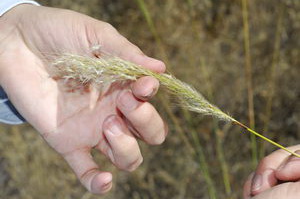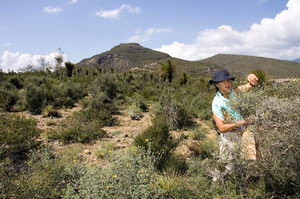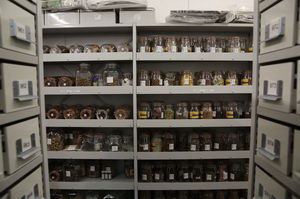Millennium Seed Bank Partnership (MSBP)



The Millennium Seed Bank's global network, the MSBP, is the largest ex situ plant conservation programme in the world. Our focus is on global plant life faced with the threat of extinction and plants of most use for the future. The State of the World's Plants Report highlighted that an estimated two in five of global plant species are threatened with extinction. The seeds we save are conserved in seed banks as an insurance against the risk of extinction in their native habitat.
Working with our network of partners across 97 countries and overseas territories, we have successfully banked 16% of the world's wild plant species. We target plants and regions most at risk from the ever-increasing impact of human activities, including land use and climate change. You can find out more about our current projects by visitng the Banking the Worlds Seeds webpage.
The Millennium Seed Bank Partnership newsletter, Samara, is published annually in December. It contains interesting stories and experiences from our partners across the globe. Past issues of Samara can be accessed on the Samara webpage. In September 2021 we launched an e-newsletter version of Samara, published three times a year in March, June and September. This is available on the e-newsletter webpage.
Seeds are available for distribution to bona fide users, through the Seed List. There are also a number of different MSBP resources for use by our partners and other parties. See our Resources page to view what is available.
Kew's Millennium Seed Bank currently holds over 99,000 collections of 39,989 species from 190 countries and territories (updated on 20-July-2023 (data prepared by U. Liu)).
The targets of the Millennium Seed Bank help to achieve Target 8 of the Global Strategy for Plant Conservation, one of the Cross-Cutting Issues of the Convention on Biological Diversity.
This website and the linked database are curated and published using BRAHMS and BRAHMS online
Why Kew saves seeds
2 in 5 plant species are estimated to be threatened with extinction.
Plants are dying out largely due to the activities of people. Clearing of primary vegetation, over-exploitation and climate change are all causing species losses.
We need plants, because plants are useful. Plants provide the air we breathe, they provide clean water, fuel, building materials, fibres, resins and we all rely on plants for food.
Plants also play a vital role in combating climate change. Plants maintain the atmosphere and counteract climate change by absorbing carbon dioxide, turning it into plant material. Kew's projects are supporting plants in mitigating and adapting to our changing climate.

